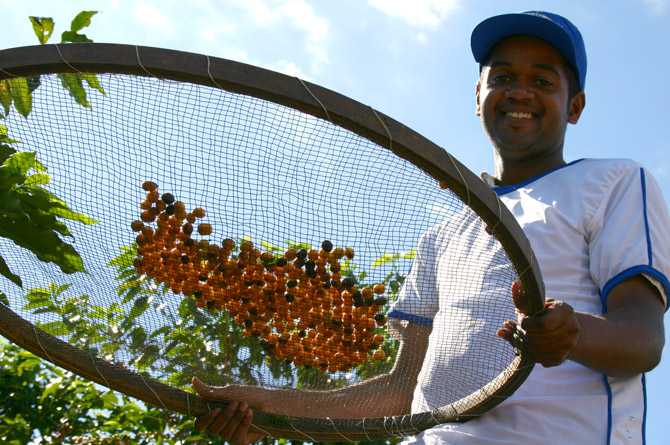The 2018/19 coffee harvesting (arabica and robusta) was slow in Brazil in the second fortnight of May. Although activities were expected to step up only in June – due to crops maturation –, many growers, who had already started to harvest both early beans and younger crops, had to reduce activities late last month.
Besides unfavorable weather in some regions, Brazilian truckers’ strike (which started on May 21) hampered activities, since there was no fuel for the machines on some farms and neither for workers’ transportation to crops.
Regarding the robusta coffee from Espírito Santo, rains in April and May ended up delaying maturation and harvesting, which only started in mid-May. Late last month, fieldwork was hampered by Brazilian truckers’ strike, with activities reaching from 5% to 10% of the total robusta volume produced in that state.
In Rondônia, on the other hand, activities were flowing better. Despite the lack of trucks, activities did not stop in that state, where harvesting had reached 80% of the crop until late May.
Brazilian market
The domestic arabica and robusta quotes increased in May, pushed up by dollar and international price rises. Besides, many sellers stayed away from the spot market, underpinning quotes and reducing the pace of trades. Late in the month, trades were limited by truckers’ strike.
Cepea collaborators claimed that the situation affected exportations as well. Only some trades involving robusta were observed in that period, but with no delivery scheduled.
On May 30, the CEPEA/ESALQ arabica coffee Index closed at 456.63 BRL (122.09 USD) per 60-kilo bag, 3.6% up compared to that on April 30.
For robusta, the CEPEA/ESALQ Index for the robusta type 6, screen 13, Espírito Santo State, closed at 334.76 BRL (89.51 USD) per bag, a slight 2.4% up in the same comparison.
Estimates for 2018/19
Many agents consulted by Cepea believe the Brazilian 2018/19 coffee crop will be larger than that estimated by Conab (National Company for Food Supply) in their May report. According to Conab, Brazil should produce around 58 million bags of coffee (arabica and robusta), 29.1% more than the previous season (2017/18), reaching a new production record.
Although Conab’s estimates are similar to forecasts from agents consulted by Cepea (at 60 million bags), there are differences, mainly regarding the robusta output in Brazil and arabica from Zona da Mata Mineira.
According to Conab, the robusta harvesting should total 13.71 million 60-kilo bags in 2018/19, 27.9% up compared to the 2017/18 crop and similar to that expected by Cepea collaborators (14 to 15 million bags). Higher production results from favorable weather during crops development and better farming practices.
In Espírito Santo, while Conab estimates production to total 8.3 million bags, Cepea collaborators believe it may be larger than that, from 9 to 10 million 60-kilo bags this season. In Rondônia, agents disagree with Conab’s estimates, at 2.18 million bags. According to Cepea collaborators, the crop should be smaller, between 1.3 million and 2 million bags.
Regarding arabica, harvesting should reach 44.5 million 60-kilo bags this year, compared to the 35.4 million bags in the previous season, 29.4% up according to Conab.
The larger output in 2018/19 is mainly linked to the positive biennial cycle in most Brazilian arabica-producing regions, production in new areas and renewed crops, and favorable weather.


















